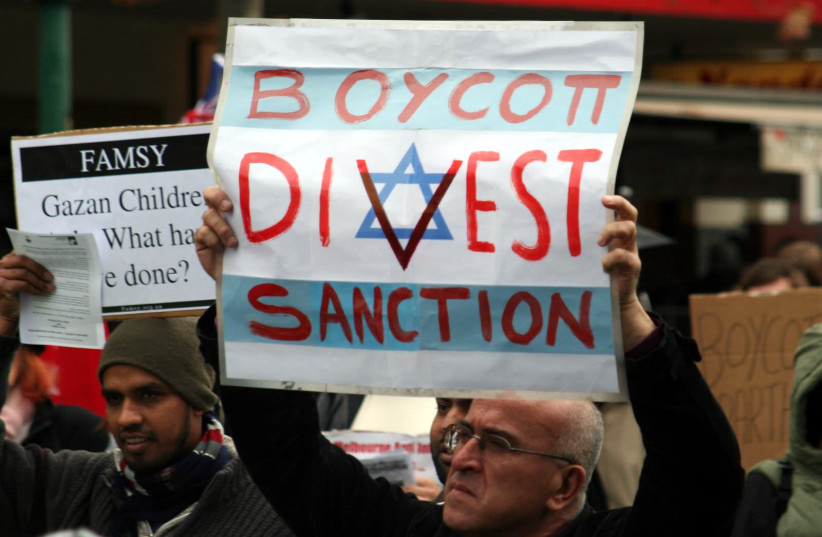American universities issued a wave of suspensions in recent weeks in response to severe disruptions on their campuses by Pro-Palestinian activists.
Vanderbilt University expelled three students, suspended another, and put 22 more on disciplinary probation on April 5 after they forcibly entered a hall and engaged in a 21-hour occupation of the building. Police had arrested and charged some of the students, according to the Vanderbilt Divest Coalition.
The same day, 20 students from Pomona and the Claremont Colleges group were arrested, suspended, or banned from Pomona College after they had entered the president’s office and occupied it for two hours.
On April 3, six students, including a Palestinian and two Jewish students, were suspended by Colombia University over a March 24 protest which featured Masar Badil (the Palestinian Alternative Revolutionary Path Movement) and Samidoun Palestinian Prisoners Network, both of which are alleged to have ties to the Popular Front for the Liberation of Palestine terrorist group.
While it seems like some universities may finally be taking a stand against student radicalism, campus disruptions, and harassment of the administration, Pro-Palestinian activists remain undeterred.
Vanderbilt pro-Palestinian groups have been organizing protests, with a walkout most recently last Monday.
In addition to demands to restore a student government Boycott, Divestment, and Sanctions (BDS) referendum canceled by the administration, Students for Justice in Palestine (SJP) demanded last Sunday on Instagram “that Vanderbilt stop suppressing students. Drop the expulsions, drop the suspensions, drop the charges.”
Pomona Divest Apartheid has threatened to occupy more campus buildings from Monday to Thursday in response to the suspensions, taunting in an Instagram Post “Hey [Pomona College President] Gabi Starr, which building is next? All activities at this college are subject to suspension! You have one day.”

The threat came after hundreds of students protested Thursday demanding the university not only cancel the suspensions but also adopt BDS policies and call for a ceasefire in Gaza.
Columbia Students for Justice in Palestine and Columbia University Apartheid Divest have continued to push BDS resolutions and a letter campaign to revoke the disciplinary action.
Can campus extremism be stopped?
Many previous efforts to counter on-campus extremism by banning pro-Palestinian groups have also failed.
Columbia SJP and Jewish Voice for Peace had previously been suspended in March, but this did not prevent them from helping to organize an April 4 protest, even after the administration warned “This protest is unsanctioned – organizers and participants will be subject to disciplinary action if they proceed.”
“Let’s make it clear – this campus is ours!” a protester with a loudspeaker said in a video posted by SJP. Protesters chanted, “There is only one solution: Intifada, revolution.”
The Rutgers University SJP had been reinstated in January after a suspension, and pro-Palestinian students on April 4 clearly felt no fear when they disrupted, hijacked, and forced Rutgers University president Jonathan Holloway and Jewish students to flee a Student Assembly town hall.
“We don’t want two states, we want ’48! There is only one solution, the intifada revolution! Intifada, intifada! Long live the intifada! Globalize the Intifada! Settlers, settlers, go back home, Palestine is ours alone! This is unacceptable, Jerusalem is our capital. From the River to the Sea, Palestine will be free,” sang the anti-Israel students.
The Brandeis Students for Justice in Palestine was banned from the university, but the organization has continued to plan rallies on campus. It seeks to be rechartered.
“Recognized or not, the Brandeis SJP will continue to advocate for the freedom of the innocent people of occupied Palestine,” said the now-called Dies SJP in a February “statement of return.”
At MIT the suspended Coalition Against Apartheid continues to push to be reinstated, as does Students for Justice in Palestine at George Washington University.
While there is a trend to discipline the radicals at American universities, like the previous round of suspensions of extremist groups, it may take more strenuous action to have an effect.
